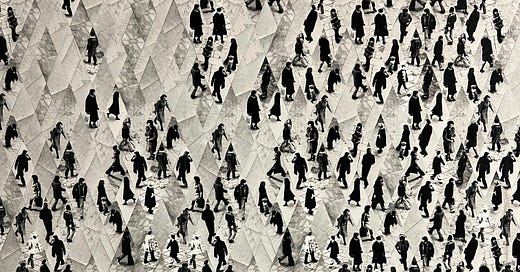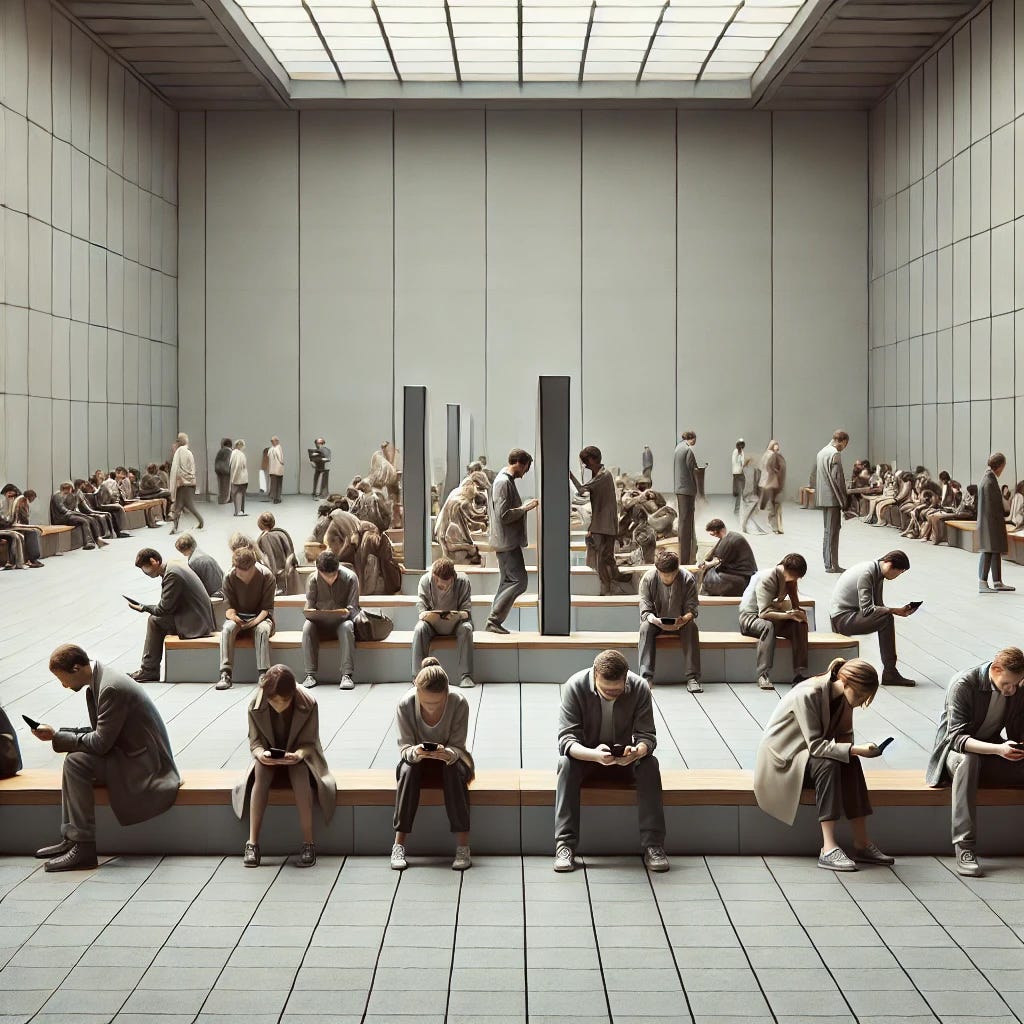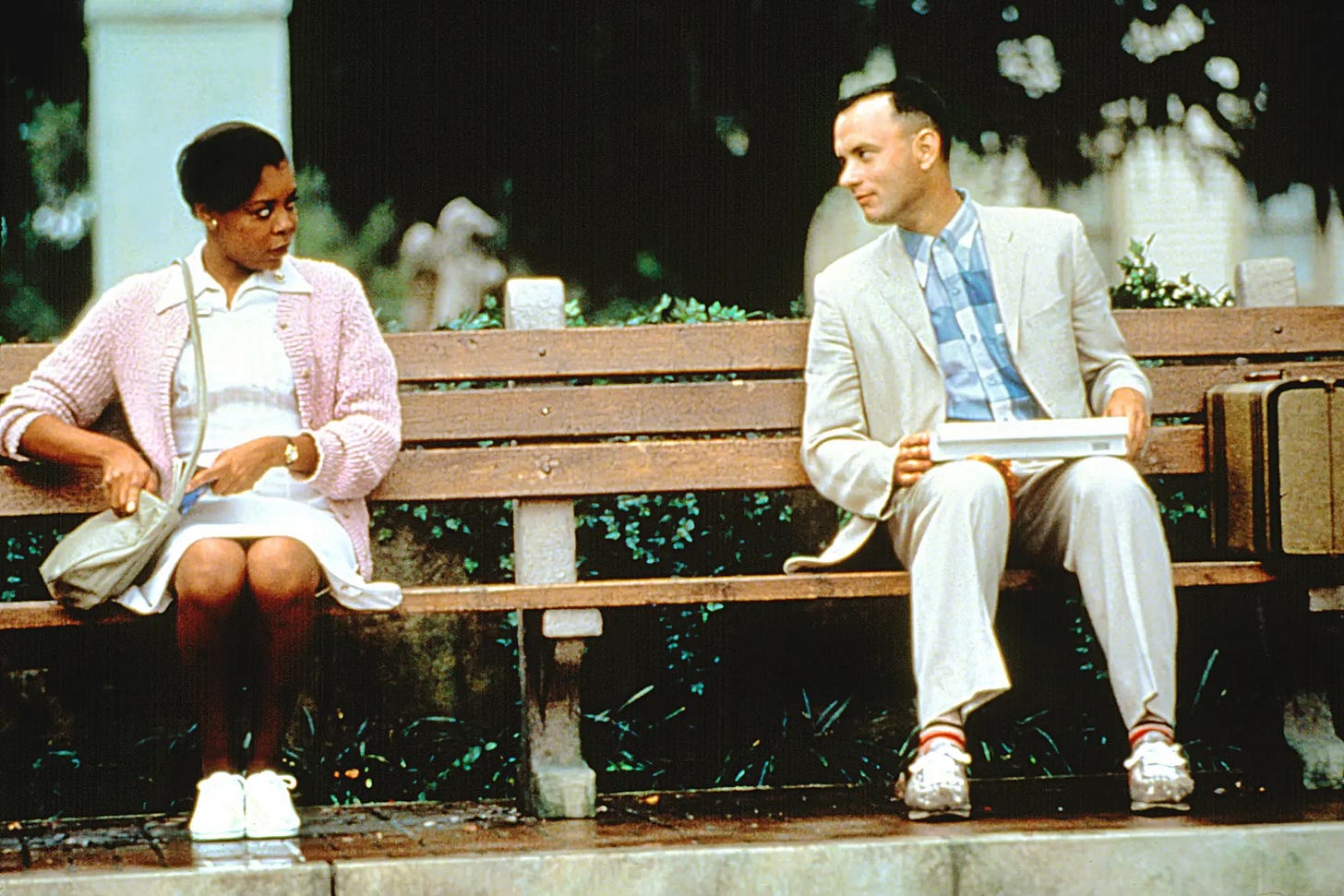I was boarding a plane the other day, stuck in the narrow gangway leading to the aircraft, when the businessman next to me started FaceTiming his wife at full volume. The entire queue was part of their conversation. After a minute or two, I turned to him and asked, politely, if he could lower the volume or use headphones.
Instead of acknowledging the request, he relayed my words to his wife, making it sound like I was the problem. When he finally hung up, he turned to me and said, “Now my wife is going to be mad at me because I had to end the call. That’s on you.”
Fine by me.
It’s one of those moments that makes me wonder: Have we completely given up on public space as something shared?
It’s not just phone calls. It’s thousands of reels at full blast on the metro, people watching content through their phone speakers in cafés. It’s a growing indifference to the fact that, yes, other people exist – and maybe, just maybe, they don’t want to be part of your personal bubble.
I looked around that morning, waiting for someone else to react. Nothing. People either had their own screens in front of them or were simply numb to it. And that’s what worries me most. It’s not just that this happens – it’s that it’s no longer seen as a problem.
Maybe it’s not a problem at all?
How Did We Get Here?
The smartphone always on may be the clearest example, but it’s just one symptom of a broader cultural shift. Public spaces – streets, cafés, restaurants, metros, parks, you name it – are no longer shared environments. Instead, they’ve become extensions of our private lives, with little regard for those around us.
The Digital Bubble
As easy and entertaining as it is to get lost in our screens, we all know how much they've eroded our concentration - both individually and as a society. Studies have shown that the mere presence of a smartphone can reduce cognitive performance. And already in 2005 research showed that regularly checking your email can lower your IQ by up to 10 points - twice the effect seen in studies of marijuana use. Imagine the decline now in 2025 with constant digital distraction.
Meanwhile, public spaces increasingly resemble a scene from a zombie apocalypse. The Guardian recently highlighted how "smartphone zombies" are now a global phenomenon – heads down, oblivious to the world around them. If public spaces once encouraged interaction, they now serve as a backdrop for individual digital worlds.
We don’t just miss accidents waiting to happen – we also overlook the small, human moments that make public spaces feel alive. The beauty of a quiet or even loud street. Someone in need of help. The basic awareness to cross the street without bumping into someone, a smile.
Just the other day, I saw a person so deep in their social media feed that they walked straight into a traffic light and hit their head.
I kind of liked it. A moment of poetic justice.
But it made me think: if we’re oblivious to physical obstacles, how much else are we missing? The world around us, the people next to us, the small interactions that once made public spaces feel alive.
The Public-Private Blur
But this isn’t just about tech – it’s cultural. A few shifts have made public spaces feel more private:
Remote Work Culture
More people work outside, in cafés, trains and airports, treating them like personal offices – whether it’s Zoom calls in a quiet space or a restaurant doubling as a private meeting room.
The “Always-On” Mindset
We’ve been conditioned to expect constant engagement, and now our lives feel incomplete without it, even in the most shared of spaces. If people are watching Netflix on their commute, recording content in public, or playing voice messages aloud, it’s because the need for personal engagement outweighs any awareness of public life.
Even professionals who should be hyper-aware – security guards, police officers, bus drivers – are often glued to their phones. Just recently in Milan, I saw two soldiers of the "Operation Secure Streets" patrolling in their military jeep, both lost in their screens.
It might seem funny, but it’s a sign of just how out of touch we’ve become with our surroundings.
Solutions – An Attempt
So, what can be done? Some initiatives have started take action:
Expanding "Quiet Zones" in public transport, stations, bars are expanding in some European countries, though enforcement remains tricky.
Public campaigns on digital etiquette could help shift norms – just as we once educated people about not smoking indoors or littering.
Banning smartphones in certain environments: Some schools and cultural venues are already introducing restrictions. Could other locations follow?
France has issued fines for phone calls on loudspeaker in public transport – one man was recently fined €200 at a train station under noise control laws. But is fining people really the solution?
Perhaps the most effective approach isn’t punishment but social recalibration. Social norms changed. The same could happen here. It starts with awareness. Noticing others. Seeing public space as shared, not just background noise to our private lives.
Rebuilding Public Life
This conversation isn’t just about the smartphone. It’s about how we coexist in public spaces in an era of hyper-individualism. At its core, public life is a collective experience – and right now, it feels like we’re losing the script – to me at least.
I don't want to be the guy who talks about "society" as if I have all the answers. But I don't think this is inevitable. We don't have to accept the slow erosion of public life into a chaotic mess of speakerphone calls, viral videos and the total societal collapse.
The good news? Awareness is the first step toward change. Maybe we won’t completely undo the FaceTime-in-a-crowded-gate phenomenon, but if we restore even a little sense of shared responsibility, we might just make public life feel public and nice again.
And if that businessman’s wife is still mad at him? Well, I can live with that.
Do you feel public spaces have become more self-centered? What small change can you make today to help restore a sense of shared space in the public places you frequent? Let’s discuss – or fight?
*Moritz








I couldn’t agree with you more. My 79 year old mother who prides herself on not having any social media accounts is still distracted by endless emails and calls. On reflection I realised that she is also doing all of the work that secretaries and receptionists might have once done to arrange all of her hospital appointments, municipal bills et al With the loss of these support roles to smart AI/ online systems we, the customer now operate them ourselves - it has led to us needing to do all of that extra leg work- which includes my 79 year old mum= distraction from the more important things in life like coffee with friends and walks with her dog